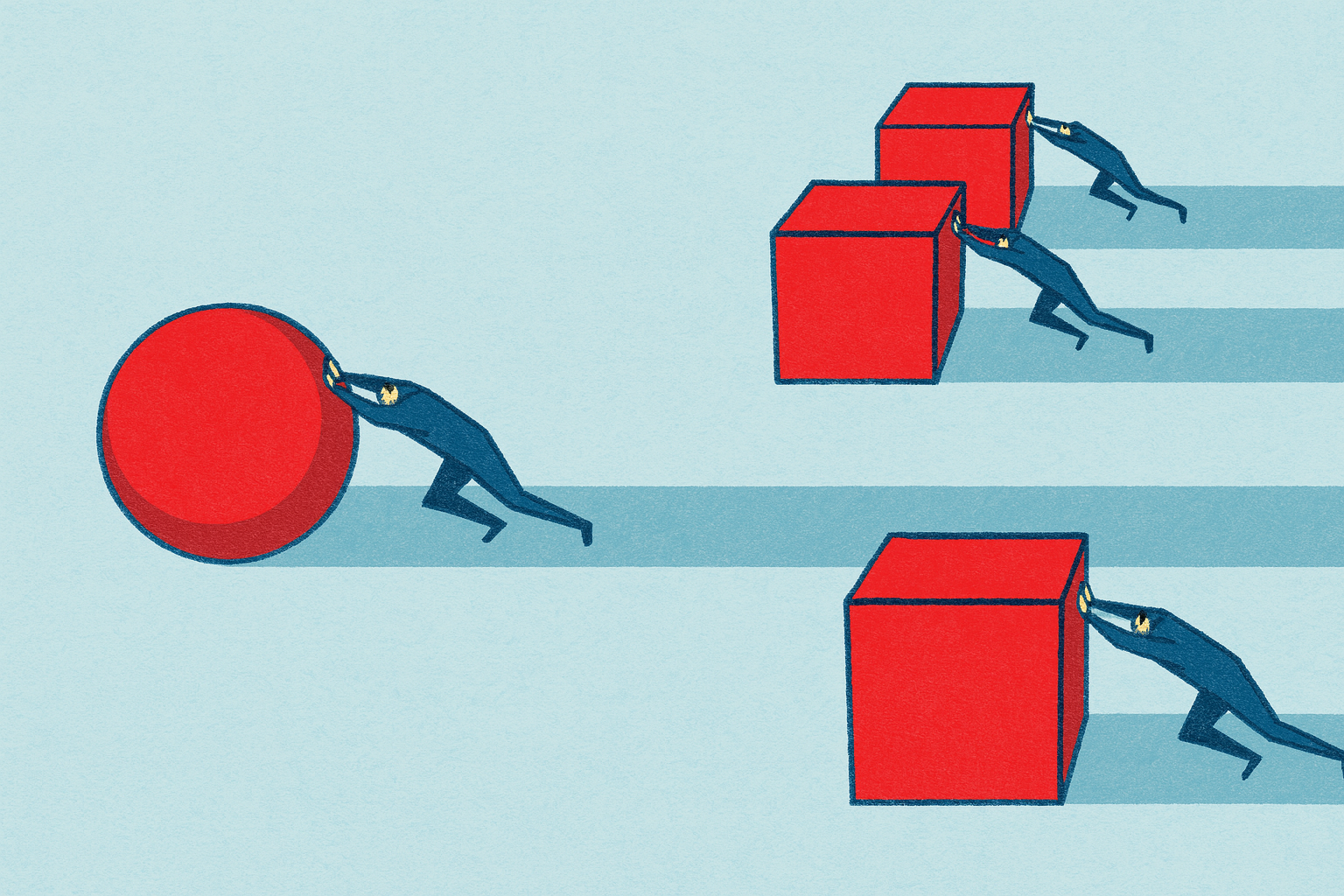3 Super-Easy Ways To Boost Your Team’s Productivity in 2025
53% of employees report being unproductive at work. You can reverse this for your team with 3 surprising scientific discoveries, and do more with less.
3 min read ·
Nov 19, 2024

As we approach the final stretch of 2024, productivity is lagging across industries. Lingering effects of burnout, shifting work dynamics, and economic turbulence are all taking a toll. According to McKinsey research, 53% of employees report being relatively unproductive at work. This disengagement and attrition could cost a median-size S&P 500 company between $228 million and $355 million a year in lost productivity. Over five years, that’s at least $1.1 billion in lost value per company.
To make matters more challenging, post-election uncertainty is only adding to the mix, leaving many teams struggling to find focus and momentum.
The good news?
You don’t need a complete overhaul to get your team back on track. Small, intentional changes can make a big difference. By leveraging the latest research, you can reinvent productivity, create the right conditions for creativity, momentum, and engagement—and finish the year stronger than ever.
These three super-easy, science-backed strategies are designed to help your team thrive and maximize their potential.
1. Run a “Fail Party” to Spark Creativity
When brainstorming, most teams focus on accomplishments and wins to boost morale. But science suggests that sharing stories of failure and embarrassment may be the secret weapon to unlocking creativity.
Research from the Kellogg School of Management found that groups that started their brainstorming sessions by recounting embarrassing stories generated 26% more ideas and a wider range of solutions compared to those that shared stories of pride. By sharing a cringe-worthy anecdote, team members lower their self-censorship and foster a more trusting and relaxed environment for creative thinking.
How can you do this?
Start your next brainstorming session with a “fail party.” Gather your team over some snacks or coffee and invite everyone to share a funny or embarrassing moment from work. You might be surprised at how laughter and vulnerability can create an atmosphere of psychological safety, leading to better ideas and stronger collaboration.
2. Analyze Your Team’s Peak Experiences
When was your team at its best this year? Reflecting on the first six months of 2024 can provide powerful insights into what truly energizes and motivates your team.
Borrowing from the principles of Appreciative Inquiry, developed at Case Western Reserve University, focus on the moments where your team experienced the most energy, momentum, and ease. What projects felt seamless? Which initiatives generated excitement and high engagement? By identifying these “peak experiences,” you can double down on what’s working and shift resources toward areas that need improvement.
This approach isn’t just about “feel-good” moments. Organizations like Green Mountain Coffee Roasters have used Appreciative Inquiry to deliver hard results, such as reducing operating costs by 7% and optimizing workflows. By focusing on what’s already successful, you can amplify strengths and create a more productive team environment.
3. Embrace “Anti-Power Hours” for Breakthrough Thinking
In today’s fast-paced world, we’ve lost the art of doing nothing. But boredom isn’t the enemy—in fact, it’s the gateway to creativity.
Studies show that when we allow our minds to wander, we’re more likely to generate innovative solutions. When we’re bored, our brains enter a relaxed state, lowering our usual filters and unlocking new connections. This is why some of the greatest ideas—from J.K. Rowling’s Harry Potter to groundbreaking choreography—emerged during moments of idleness.
As a leader, you can encourage your team to embrace this creative downtime with “anti-power hours.” Set aside an hour each week where no one is expected to produce anything. This time can be spent exploring ideas, reflecting, or simply letting their minds wander. Even small changes—like canceling low-value meetings, shortening recurring ones, or encouraging unplugged breaks—can create space for your team’s next big breakthrough.
Productivity doesn’t have to mean pushing harder.
By running a fail party, reflecting on peak experiences, and embracing boredom, you’re not just boosting your team’s output—you’re setting the stage for a more robust, innovative finish to the year.
That’s the kind of break we all deserve (and desperately need) right now.


.svg)